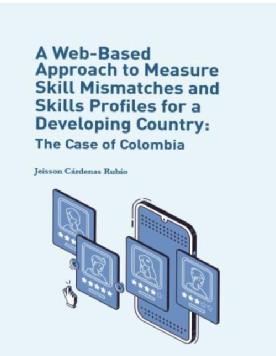IER News & blogs
Dr Sangwoo Lee on the latest ONS Labour Market Statistics
"While the employment rate remains steady at 74.9%, several indicators signal growing strains. Redundancies have risen by 67.8% year-on-year—increasing to 99,000 from 59,000, the proportion of long-term unemployment has grown significantly, and the unemployment rate has climbed to 4.3%. These developments reflect a fundamental structural adjustment in labour market conditions rather than a temporary fluctuation."
Towards a healthy labour market index
On April 15 2024, IER convened a meeting which brought together stakeholders to discuss concepts and ideas related to a ‘healthy labour market’.
The discussion was led by Prof Chris Warhurst, Prof Peter Elias and Dr Jamelia Harris, and centred on the need for new measures (beyond measures of employment, unemployment and inactivity) which better capture an evolving labour market and recognise the needs and interests of different groups in the labour market.
New UK labour market projections to 2035 released
 IER and Cambridge Econometrics have produced new UK labour market and occupational projections to 2035 as part of the Nuffield funded Skills Imperative 2035 Programme led by the National Foundation for Educational Research (NFER).
IER and Cambridge Econometrics have produced new UK labour market and occupational projections to 2035 as part of the Nuffield funded Skills Imperative 2035 Programme led by the National Foundation for Educational Research (NFER).
These projections, led by Professor Rob Wilson, update and extend the Working Futures reports produced just before the Covid-19 pandemic.
How can skill systems in Europe reduce the level of skills mismatch in labour markets?
IER's Professor Terence Hogarth has successfully secured Horizon Europe funding for his project Skills2Capability. The project is about understanding how skill systems across Europe can reduce the level of skills mismatch in their labour markets.
A web-based approach to measuring skills mismatches and profiles in a developing country
 Despite information failures in the labour market and their consequences on unemployment and informality rates, countries like Colombia lack a proper labour market information system to identify skill mismatches and employer skill requirements.
Despite information failures in the labour market and their consequences on unemployment and informality rates, countries like Colombia lack a proper labour market information system to identify skill mismatches and employer skill requirements.
The use of online job portals as a potential source of labour market information has recently gained researchers’ and policymakers' attention. However, debates continue about the efficacy and robustness of job portals for labour market analysis.
This new book by Jeisson Arley Cardenas Rubio contributes to our current understanding of the topic by developing a conceptual and methodological approach to identify skills, occupations, and skill mismatches using online job advertisements, which would otherwise be too complex to analyse.
